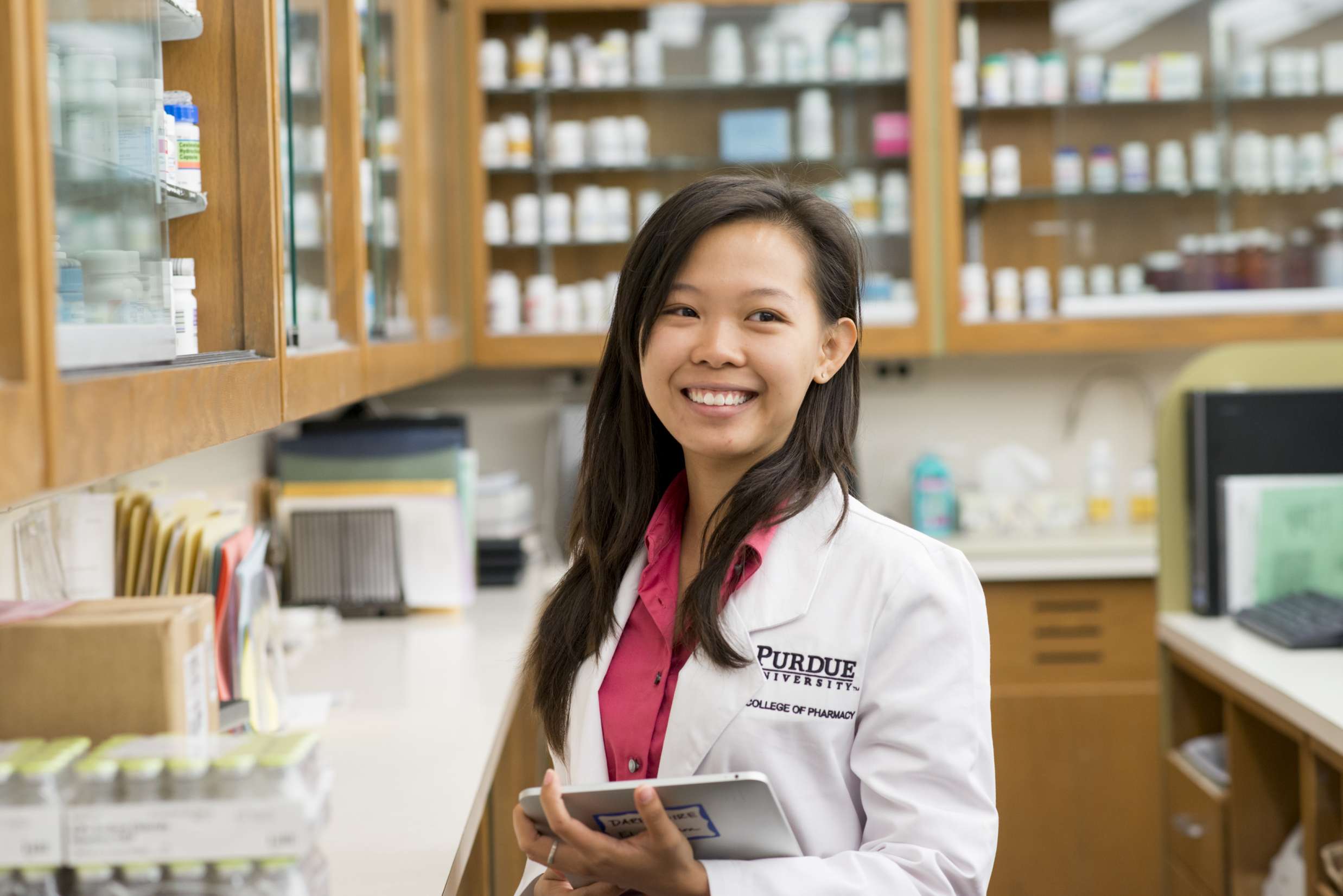
Overview
Founded in 1884, Purdue’s College of Pharmacy consistently ranks among the 10 best pharmacy programs in the nation. Numerous research opportunities, an innovative teaching pedagogy, and world-renowned, caring faculty create a cutting edge learning environment. Employers are drawn by the quality, depth and experiential learning of Purdue pharmacy graduates. The College of Pharmacy is making a difference locally and globally.
Undergraduate Program
The Purdue College of Pharmacy offers an undergraduate program in Pharmacy. All new students enter the College with a major in Pharmaceutical Sciences and then select from one of two educational goals:
Pre-Doctor of Pharmacy is a two-year, non-degree program that is intended to prepare students for entry into the PharmD program. Completing this program, however, does not guarantee entry into the PharmD program.
The Bachelor of Science in Pharmaceutical Sciences (BSPS) is a four-year undergraduate program that stresses the multidisciplinary basic sciences related to drug discovery, development, and commercialization. A degree in this program does not allow graduates to become licensed pharmacists.
Professional Program
Doctor of Pharmacy (Pharm D) - Completion of the Pre-Doctor of Pharmacy coursework is required, after which successful applicants continue their studies for an additional four years. Graduating from this program allows students to sit for the licensure exam to practice pharmacy.
Graduate Programs
The Purdue College of Pharmacy boasts one of the oldest and most-respected graduate programs in the U.S. Each of the three departments of the Purdue College of Pharmacy offer graduate programs:
Each department offers a PhD degree program. All of these programs require strong undergraduate preparation, including completion of a Bachelor’s Degree for admission.
A combined-degree program allows students in the third year of the PharmD program to begin work on a Pharmacy PhD program while completing the PharmD curricula. Through a judicious choice of electives and research rotations, such students can save up to two years on the total time required for the PhD program. Additional information can be found by reading the full program description.
For more information, please contact Dr. Danzhou Yang, the Associate Dean for Graduate Programs.
Continuing Education Programs
The College’s continuing education programs offer several non-degree certificate programs.
Contact Information
Prospective Undergraduate and Professional Program Students
Contact
Holly W. Keckler, Associate Director for Recruitment, Office of Student Services:
Phone: (765) 496-7381
Fax: (765) 496-1875
Office: Room 156 RHPH
Prospective undergraduate and professional students who are interested in visiting the College and learning about programs for under-represented populations are urged to contact the Office of Diversity Initiatives to arrange for their visit.
Students completing their pre-pharmacy coursework off-campus should contact T. Patrick George.
Prospective Graduate Students
Generally, you should contact the graduate program in which you are interested. The College’s graduate programs are administered by the three departments in the College - Industrial and Physical Pharmacy, Medicinal Chemistry and Molecular Pharmacology, and Pharmacy Practice (includes Pharmacy Administration). Additionally, some of the faculty in the College participate in some of the University’s interdisciplinary graduate programs, which can be contacted directly.
If you have difficulty contacting a department or program, you may contact Delayne Graham, Administrative Assistant for Graduate Affairs:
Phone: (765) 494-1362
Fax: (765) 494-7880
Office: Room 112 RHPH